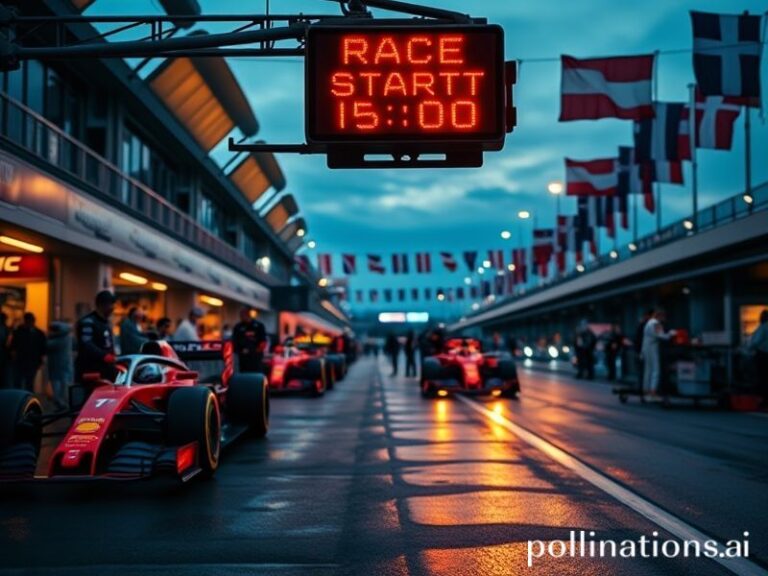Women’s Champions League: How Europe’s Elite Female Footballers Accidentally Became Accidental Revolutionaries
**The Beautiful Game’s Uncomfortable Mirror: How the Women’s Champions League Exposes Football’s Global Hypocrisy**
While the world burns and democracy teeters on various precipices, Europe’s finest female footballers have been quietly demonstrating that excellence requires no gender qualification. The UEFA Women’s Champions League—now in its 23rd season of proving that women can indeed kick balls with strategic precision—has become an annual exercise in highlighting just how thoroughly the global football establishment has missed the plot.
From Barcelona’s technical wizardry to Lyon’s corporate efficiency, this year’s tournament showcases what happens when sporting meritocracy briefly escapes the gravitational pull of testosterone-fueled marketing budgets. The viewing figures—modest by men’s standards but growing faster than a conspiracy theory in a Facebook comment section—suggest that audiences worldwide are discovering something revolutionary: women’s football is, whisper it, actually football.
The international implications are deliciously subversive. In nations where women’s participation in public life remains negotiable, these athletes serve as accidental revolutionaries, their televised excellence providing a middle finger to restrictive social norms. Iranian authorities, who briefly considered broadcasting matches with CGI-added trousers in 2021, now face the uncomfortable reality that their population might notice women running freely without society immediately collapsing.
Financially, the tournament operates as a fascinating economic experiment: what happens when you invest minimally in something worthwhile? The answer, surprisingly, is quite a lot. Prize money that wouldn’t cover a male player’s weekly Instagram sponsorship somehow produces matches of comparable technical quality, suggesting that either women are unnaturally efficient or the men’s game has been catastrophically overpaying for years. (Spoiler: it’s both.)
The global South watches with particular interest. While European clubs with Qatari ownership ponder human rights concerns between counting their petrodollars, women’s teams in Colombia and Nigeria operate on budgets that wouldn’t sustain a Champions League mascot, yet consistently produce players who dominate internationally. It’s almost as if talent distribution and wealth distribution are entirely separate phenomena—a revelation that threatens to destabilize the entire foundation of global inequality, or at least make it slightly uncomfortable at dinner parties.
Corporate sponsors, those reliable barometers of moral progress, have begun circling with the enthusiasm of vultures discovering fresh carrion. Their dilemma: how to monetize women’s sport without appearing to notice that they’ve ignored it for decades? The solution appears to be rainbow-colored boots and empowerment hashtags, because nothing says gender equality like selling more merchandise to people who’ve been systematically excluded from the conversation.
The tournament’s broader significance extends beyond sport into the realm of international relations. When Barcelona Femeni dismantles an opponent 9-0, they’re not just winning a match—they’re demonstrating that Catalan independence might be achieved through superior passing patterns. Every Lyon victory serves as a reminder that French central planning can work, provided it’s applied to football rather than economic policy.
Perhaps most troubling for the old guard is the demographic reality: young audiences worldwide increasingly can’t fathom why anyone ever doubted women’s capacity for elite sport. To them, the Women’s Champions League isn’t a novelty—it’s simply Tuesday evening entertainment, complete with the same drama, skill, and refereeing controversies that define the men’s game, minus the tedious tribalism and astronomical ticket prices.
As another season concludes with the customary coronation of European excellence, the tournament stands as both triumph and indictment. Triumph, because it proves that given minimal resources and maximal talent, women produce football worth watching. Indictment, because it exposes how thoroughly the global game has squandered decades of potential while patting itself on the back for incremental progress.
The revolution, it seems, will be televised—just don’t expect equal pay for it anytime soon.







